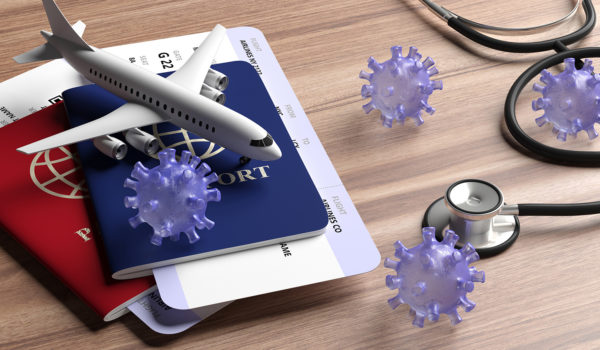COVID-19 raises novel questions about the breadth of federal pre-emption relating to airspace and flight. What are an operator’s obligations to meet state or federal health requirements implemented in response to the pandemic? Does an operator follow the gathering requirements of the state from which the flight departs or where it lands? Or does the operator follow the federal requirements instituted?
In these complicated times, the safest action is not to fly. However, avoiding flight isn’t always possible for businesses or individuals. In order to meet the health needs of the public and reduce liability risks for operators, all passenger carriers – Corporate Flight Departments, Part 135 operators and Part 91 operators, should follow the most restrictive requirements instituted by the departing or arriving destinations’ state or local authorities, and at a minimum those implemented by the federal government.
Practice social distancing (restrict number of passengers), actively monitor for any signs of illness amongst passengers and crew and follow disinfection guidelines after each flight.
If you are flying internationally, you must enter the U.S. through one of the 10 approved airports and all passengers will have to follow the quarantine requirements if traveling from a level three location as listed by the CDC.
Prior to each flight, consider instituting a Passenger Disclosure form seeking the following information from each passenger:
- Name and contact information.
- Any symptoms of illness within the last 14 days prior to departure.
- Any known contact with a person showing signs of coronavirus or other illness within the last 14 days or has tested positive for COVID-19.
- All domestic or international travel in the past 14 days.
- Ask the passenger to sign an affirmative statement that the information provided is true and correct.
If a passenger has had any symptoms associated coronavirus, known contact with someone who has, or has traveled to a known “hot spot,” do not allow the passenger to board.
If someone on board the flight becomes ill during the flight, contact the destination tower and advise of the situation. Ask for detailed instructions regarding the steps to take upon arrival. Be prepared to divert to a location that would be better prepared to handle the response.
This is a challenging time to say the least. The rules and regulations are changing rapidly and could change while a flight is en route. Keep up to date by monitoring local, state, and federal websites, including the Centers for Disease Control, Department of Homeland Security, and the Federal Aviation Administration.

